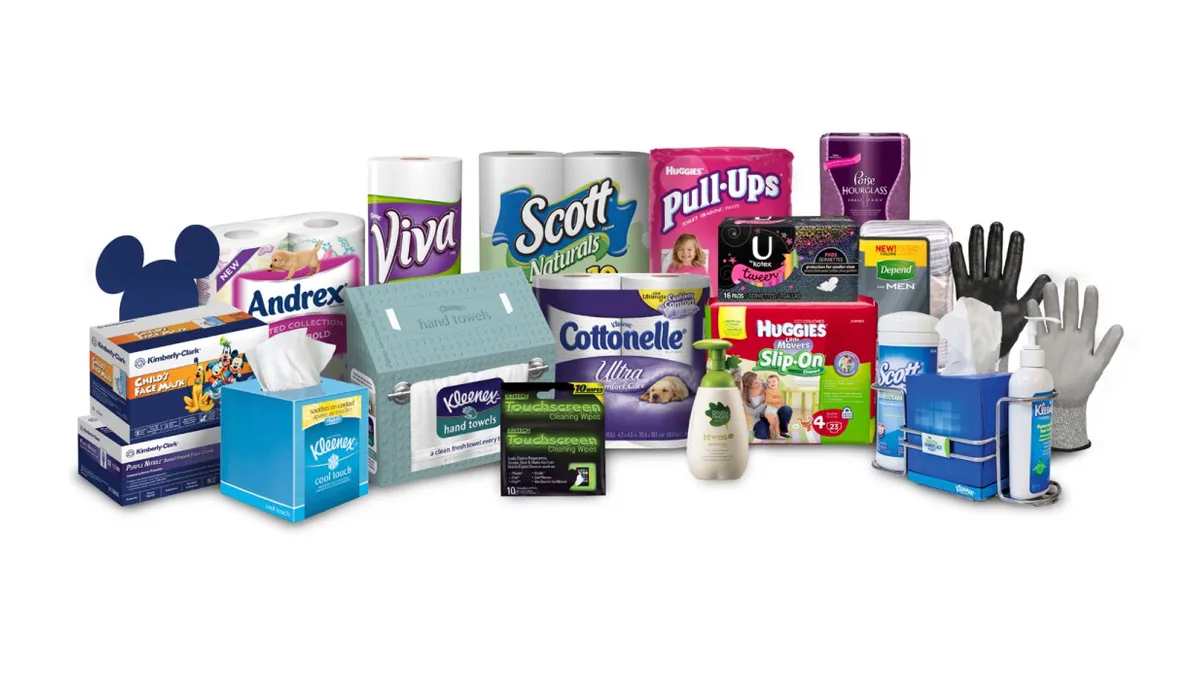Dive Brief:
- To secure a sourcing alternative to single-use plastics, Kimberly-Clark is using biotech RWDC Industries' biodegradable material for developing sustainable products, the CPG announced in a press release.
- The collaboration will provide Kimberly-Clark with RWDC's Solon, a material that is fully degradable in water, which the company plans to use to create sustainable personal care products over the next five years as it aims to reduce its usage of single-use plastics.
- This partnership is in line with the company's 2030 goal to reduce the use of fossil fuel-based plastics by half before the end of the decade, and the growing call for CPGs to address environmental concerns.
Dive Insight:
CPG companies have been creating plans to reduce their usage of single-use plastics, hoping to assuage consumer concerns about sustainability while finding cost-friendly material alternatives. Single-use plastics are a growing source of greenhouse gas emissions, and if current trends continue, emissions from the material could triple, according to a recent report by the Minderoo Fondation, an Australian philanthropic group.
Mondelēz, Coca-Cola, Nestlé and others have announced plans to reduce the use of plastics or to shift away from it completely, with an emphasis on increasing the level of recyclability of its packaging and product materials.
Kimberly-Clark's solution goes directly to the source of the product-waste issue by using a plant-based material that's 100% biodegradable. By teaming up with RWDC, the CPG brought the sourcing option to its own front door. It plans to create a material that puts it in position to make good on its sustainability promises — keeping it competitive in the current market.
The strategy is to focus on products that have large global demand for sustainability first, and go from there, the company said in the press release. Kimberly-Clark is the maker of such products as Huggies, Kleenex, Scott and Kotex.
Single-use plastics are currently the most prevalent type of plastic produced on earth, according to the Minderoo Fondation. The foundation's report notes that many of these plastics (face masks, medical equipment, coffee cups) are daily "essentials." But the rub is that they are also "the hardest plastics to collect, sort and recycle" with 98% produced from fossil fuels or "virgin feedstock."
The benefit of RWDC's Solon is that it can be switched out for plastic in single-use products, according to the biotech. Holding that the material can biodegrade fully in the matter of weeks, creating no toxic waste residue, Kimberly-Clark would have a 100% biodegradable source option.
This story was first published in our weekly newsletter, Supply Chain Dive: Procurement. Sign up here.















